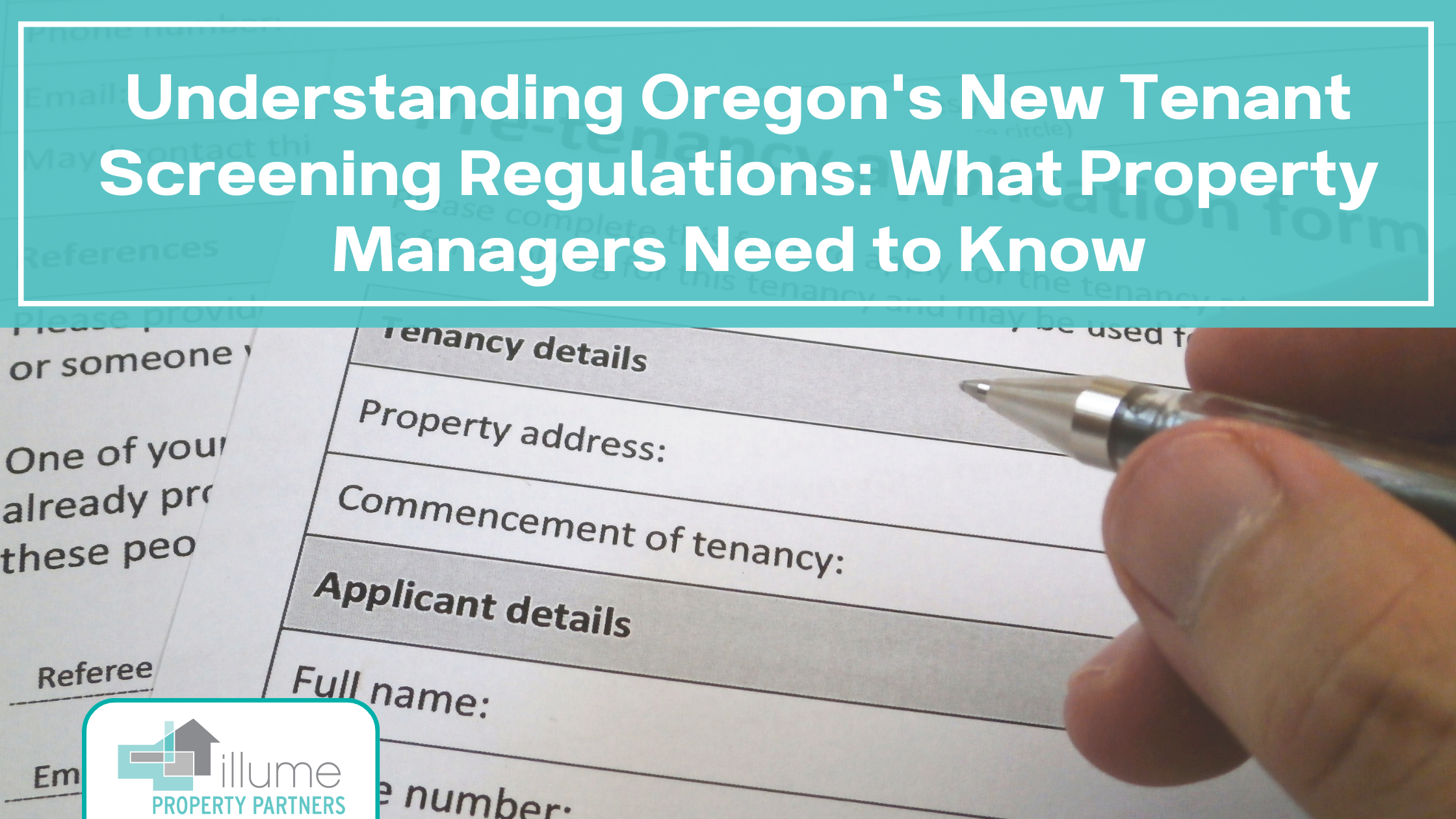Tenant screening is a critical part of property management, helping landlords and property managers ensure they are renting to responsible tenants. However, Oregon is currently reviewing House Bill 2967, a proposed law that could change how rental applications and tenant screenings are handled. If passed, this bill would prohibit landlords from charging tenant screening fees, shifting the financial burden of background and credit checks onto property owners.
With this potential regulation on the horizon, what does it mean for property managers, and how can they prepare? Here’s everything you need to know about House Bill 2967 and how it could impact your rental business.
What is House Bill 2967?
House Bill 2967 was introduced in the 2025 Oregon legislative session and is currently being reviewed by the House Committee on Housing and Homelessness. The bill proposes a ban on applicant screening fees, meaning property managers and landlords could no longer charge prospective tenants for background checks, credit reports, or other screening costs. If the bill becomes law, property managers will need to absorb the costs associated with screening potential tenants, a major shift from current practices.
How Would This Impact Property Managers?
If passed, House Bill 2967 would bring several key changes to the tenant application process:
1. Property Managers Must Cover Screening Costs
Currently, Oregon allows landlords to charge applicants for screening fees, which typically range from $30 to $50 per application. This helps offset the cost of conducting background checks, eviction history reports, and credit screenings. If HB 2967 passes, property managers will need to cover these costs themselves. A study by the National Apartment Association found that the average cost of a comprehensive tenant screening report is $40 per applicant. For landlords managing multiple applications, these costs can quickly add up.
2. Increased Financial Risk for Property Owners
Without the ability to charge screening fees, landlords might feel pressured to limit the number of applicants they screen, potentially leading to riskier leasing decisions. Property managers may need to adjust their rental criteria or find alternative ways to evaluate tenants without incurring excessive costs. In states with similar tenant screening restrictions, landlords have reported longer vacancy periods as they become more selective in processing applications to avoid unnecessary costs.
3. Possible Adjustments to Application Policies
To mitigate financial losses, property managers may need to explore alternative ways to screen tenants, such as:
Using free tenant screening services offered by third-party platforms.
Requiring stronger income and employment verification before moving forward with a background check.
Accepting tenant-provided screening reports, which are currently allowed under Oregon law.
Oregon law already allows renters to submit their own screening reports from the past 30 days instead of paying for a new background check. However, landlords are not required to accept these reports.
What Can Property Managers Do to Prepare?
While HB 2967 is still under legislative review, property managers should start preparing for potential changes. Here are a few steps to take now:
1. Stay Updated on the Bill’s Progress
Since this bill is still under consideration, it’s essential to stay informed. Follow updates from the Oregon Legislative Information System (OLIS) and attend local landlord association meetings to hear how industry professionals are responding.
2. Review and Adjust Screening Policies
Consider how you will handle tenant screening without application fees. Possible adjustments include:
Requiring higher security deposits to offset potential risks.
Strengthening rental criteria (e.g., requiring longer job history or higher credit scores).
Exploring landlord-paid screening alternatives that offer cost-effective options.
3. Advocate for Landlord Interests
If you have concerns about the financial impact of this bill, reach out to legislators or join property management advocacy groups to voice your opinion. Many industry groups lobby for balanced rental laws that protect both landlords and tenants. In a 2024 survey by the Oregon Rental Housing Association, 67% of landlords expressed concerns about absorbing tenant screening costs, fearing it could lead to higher rents or fewer available rental units.
House Bill 2967 represents a major shift in how Oregon property managers handle tenant screenings. If passed, landlords will no longer be able to charge screening fees, requiring them to absorb the cost of background and credit checks. While this could improve tenant access to affordable housing, it also creates financial challenges for property managers who rely on screening fees to cover these expenses.
By staying informed, adjusting rental policies, and advocating for landlord interests, property managers can navigate these potential changes and continue making smart leasing decisions.
Find out more about rental news, managing rental properties, and find helpful advice on maintaining your rental investments with illume Property Partners.

